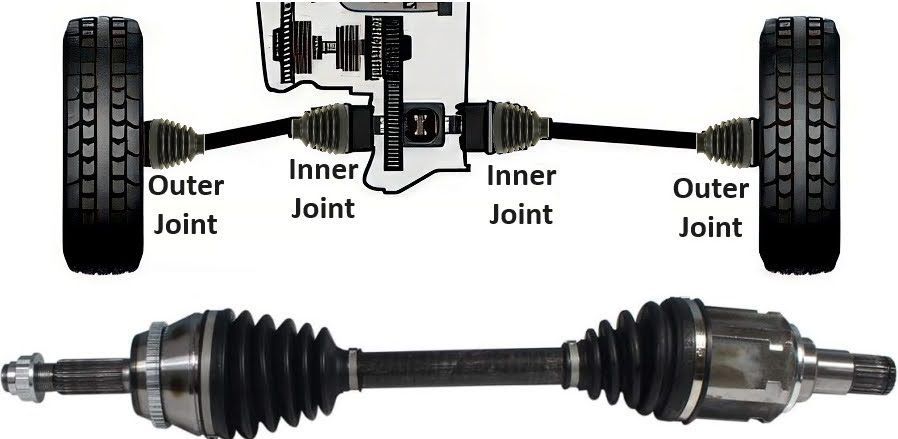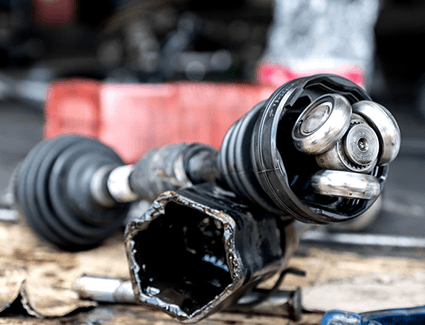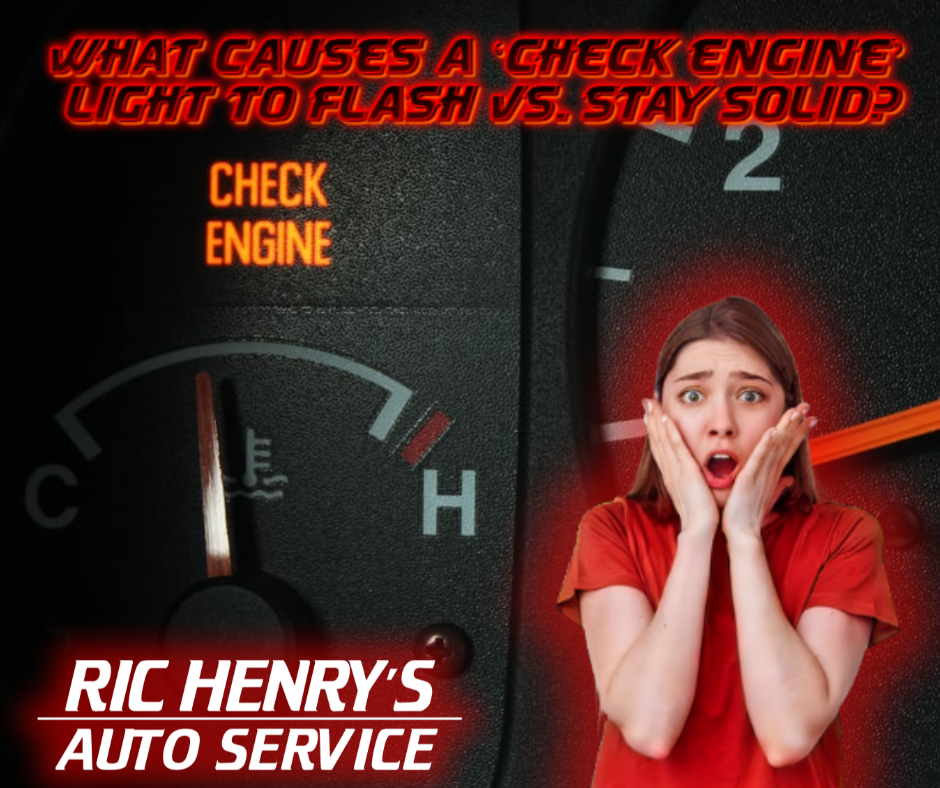CV Joints: The Most Abused Part You Never Think About
NaTasha Brand • June 9, 2025
The Heroes (and Victims) of Your Drivetrain

Your car’s CV (constant velocity) joints are like the hardworking stagehands of a theater production—no one notices them until something goes horribly wrong. These crucial components transfer power from your transmission to your wheels while allowing for smooth steering and suspension movement. Yet, despite their importance, CV joints are often ignored until they fail catastrophically.
At Ric Henry’s Auto Service, we’ve seen too many drivers wait until their CV joints are clicking, clunking, or even spewing grease before addressing the problem. In this post, we’ll break down:
✔ What CV joints do (and why they matter)
✔ The warning signs of failure
✔ Why DIY fixes often make things worse
✔ How proper maintenance extends their lifespan
What Do CV Joints Actually Do?
CV joints are the flexible pivot points between your axles and wheels. They allow:
✅ Power transfer from the engine to the wheels
✅ Smooth steering while maintaining torque
✅ Up-and-down suspension movement without binding
There are two types:
Outer CV joints (connect to the wheels)
Inner CV joints (connect to the transmission/differential)
Both are packed with grease and sealed in a rubber boot—which is usually the first thing to fail.
Symptoms of a Failing CV Joint
1. The Telltale Clicking on Turns
A loud, rhythmic clicking when turning (especially at low speeds)
Means the joint’s bearings are worn out
2. Grease Everywhere (Boot Failure)
A torn boot flings grease onto your wheel, brakes, or undercarriage
Once the grease leaks out, dirt gets in, and the joint fails quickly
3. Vibration Under Acceleration
Worn CV joints cause shuddering or shaking when you press the gas
Often mistaken for wheel balance issues
4. Clunking When Shifting Gears
A loud "clunk" when switching from Drive to Reverse (or vice versa)
Indicates excessive play in the joint
5. Steering Wheel Wobble
If the CV joint is severely worn, it can cause steering instability
Why CV Joints Fail (And How to Make Them Last)
Common Causes of Failure
Torn boots (letting grease out and dirt in)
Lack of lubrication (dry joints wear out fast)
Aggressive driving (hard launches, off-roading)
Age/mileage (most last 80,000–150,000 miles)
Maintenance Tips
✔ Inspect boots regularly (look for cracks/leaks)
✔ Replace torn boots immediately (before the joint fails)
✔ Avoid harsh acceleration (especially on lifted trucks)
Why You Should Leave CV Joint Repairs to the Pros
1. Specialized Tools & Presses Are Required
Removing/installing CV axles often requires hydraulic presses
DIY attempts can damage the axle or transmission
2. Proper Greasing & Sealing Matters
Cheap aftermarket boots often fail prematurely
Incorrect grease leads to early wear
3. Alignment Must Be Checked Afterward
Improperly installed axles can cause vibration or premature wear
At Ric Henry’s Auto Service, we:
🔧 Use OEM-quality CV axles & boots
🔧 Press-fit joints properly (no cheap clamps)
🔧 Check alignment post-repair
🔧 Back our work with a 3-year/36,000-mile warranty
Don’t Wait Until Your CV Joint Sounds Like a Maraca
A failing CV joint won’t heal itself—it’ll just leave you stranded at the worst possible moment. If you hear clicking, see grease leaks, or feel vibrations, bring your car to Ric Henry’s Auto Service before it turns into a much more expensive problem.






Share On: